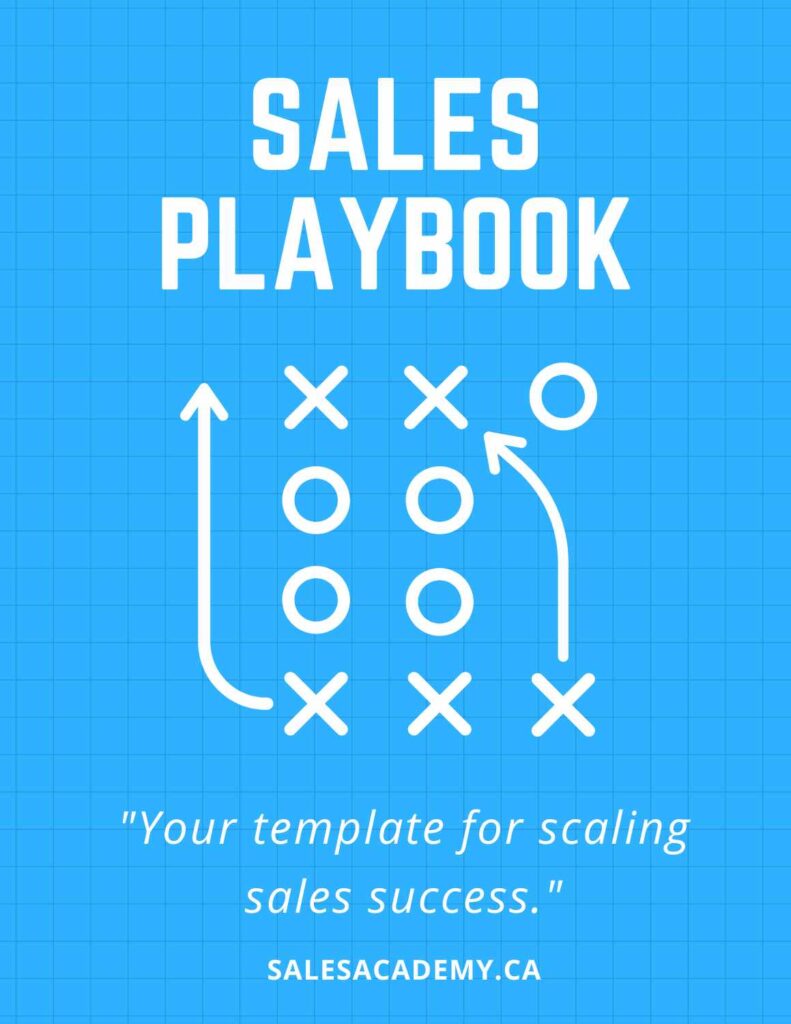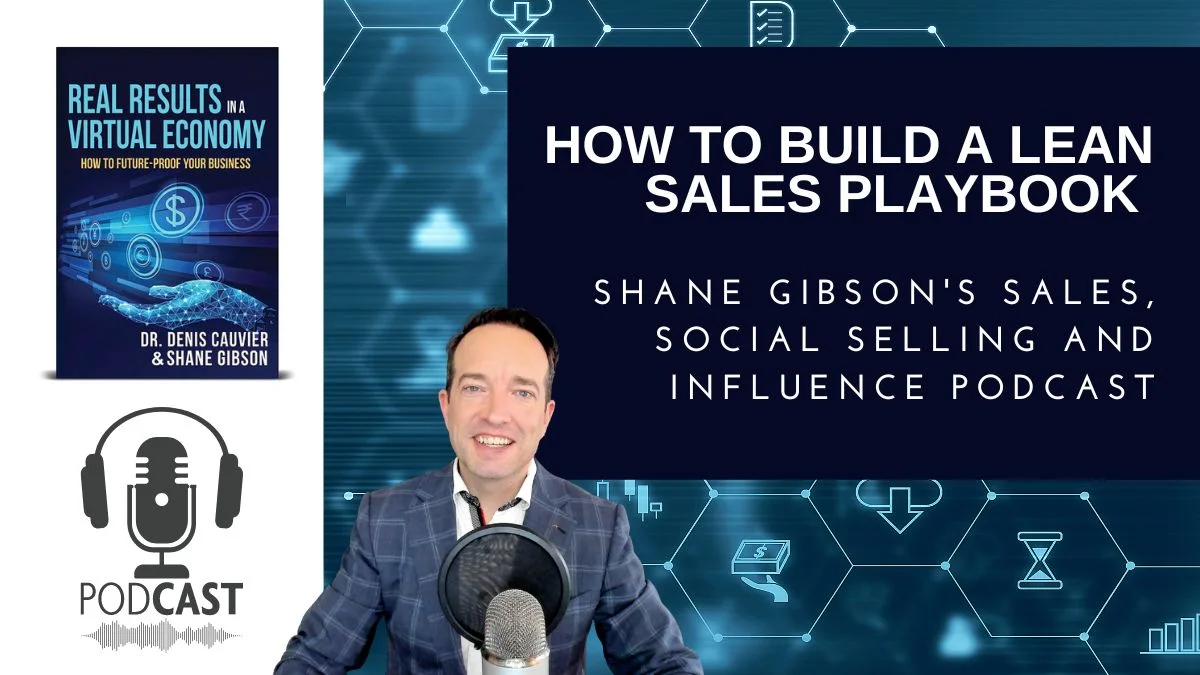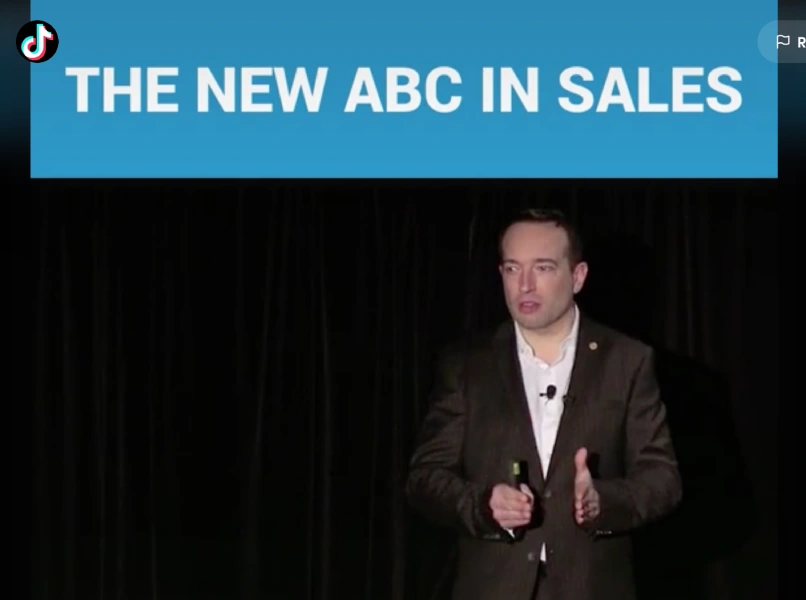Sales Podcast: How to Build a Lean Sales Playbook
Podcast: Play in new window | Download | Embed
Subscribe: RSS
Building an effective Sales Playbook for your organization is vital to your ability to scale and sustain your sales success. It’s your franchise success manual for your sales team.
There are many comprehensive and highly detailed guides out there on how to build a sales playbook, but I wanted to focus on a format that can get you started quickly.
In this podcast I cover the key components of an effective lean sales playbook. Here’s a quick list of what I cover:
The 10 Components of a Lean Sales Playbook:
- Defined target market, including micro niches and personas
- Map of key steps to your sales process that are aligned with your buyers process
- List of core sales tech tools and where or from whom to learn about them
- A “Discovery Cheat Sheet” on each vertical
- A well-documented sales discovery (qualification) and demo process
- Templates or processes for outreach and client nurturing (cadences)
- Talking points on key objections and closes
- Ready to use stories and UVP talking points for key segments
- A 3Q sales scorecard that measures:
- Quantitative – Numbers and steps
- Qualitative – Effective actions within the steps
- Quantum – Multipliers like acumen, mindset, and technology use
- KPI’s broken down from annual to monthly to weekly and daily disciplines
Tips on writing your lean sales playbook:
Each can be less than a page or can include everything from in-depth sequence information to product case studies. I would suggest starting lean and keeping each section down to one page, if possible, the playbook doesn’t have to include every piece of information on your sales process and tools BUT it should tell them where to find the information and how they will be measured.
How should you use your sales playbook?
This document can also be a great framework for your sales onboarding process, as it provides a checklist or road map of what they need to learn to effectively execute their role.
For sales managers, leaders and coaches the Sales Playbook becomes a reference guide and coaching tool. We want to train or team over time to refer to the playbook and self-assess using the score card before coming to us with a sales challenge.
In many cases I have found that building the habit of self-reflection helps salespeople get more out of their coaching sessions and builds the discipline of self-directed learning and improvement. Yes, we want them to come to us for help but we also want them to take ownership and self-direct and adjust as much as possible. The sales manager and sales leader should direct and lead not be a walking sales encyclopedia, our job is tell people where to look not to give them all the answers.
One last point and a warning about sales playbooks:
Playbooks don’t replace coaching or training. They also don’t replace job shadowing or peer mentoring. Their role is document and define best practices and processes and give the sales team a true understanding of what they need to get good at to succeed.
If you’re looking for consulting, training or Sales Playbook development visit SalesAcademy.ca













